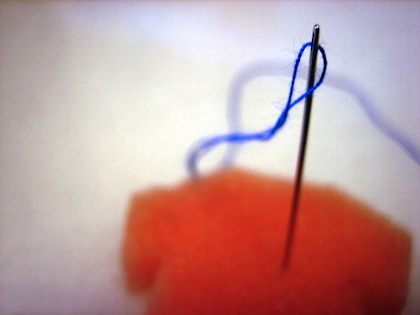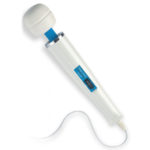Every few weeks, Dr. Vanessa Cullins, a board-certified obstetrician/gynecologist and vice president for medical affairs at Planned Parenthood® Federation of America, will be answering your questions here. To ask her your own question, click here.
Dear Dr. Vanessa,
I’m 24, and have not yet had any children. At my last gynecological exam, the clinician remarked that I have “the tiiiiiniest cervix!” I didn’t ask anything about it at the time, but now I’m wondering, is this something I should be concerned about? Will I have a difficult time giving birth?
— Tiny Dancer
Dear T.D.,
Please don’t let this clinician’s remark bother you. The remark may be more a reflection of the inexperience of the clinician than the size of your cervix. Regardless, having a small cervix does not mean that you will have a difficult time giving birth. You do not need any special evaluation or procedure because of this “lame” comment. Cervical size varies, but one thing is for sure, your cervix is small because you have not had any vaginal deliveries.
The cervix is the narrow, lower part — neck — of the uterus, with a narrow opening connecting the uterus to the vagina. A woman’s menstrual flow leaves the uterus through the opening of the cervix, which is called the os. Optimally, a pregnant woman’s cervix is long, thick, and firm so that it can provide support to keep the pregnancy within the uterus as well as to stretch open wide enough to facilitate childbirth. During pregnancy, the os is also plugged with cervical mucus to protect the pregnancy.
Having a small cervix should not be confused with having what is called “cervical insufficiency,” or “cervical incompetence,” which sometimes is caused by damage to the cervix from surgical procedures. Women with weakened cervices may need special precautions to maintain their pregnancies. If the cervix is weakened, the amniotic sac that encloses the fetus can get pushed down so far into the cervical os that it breaks. This can result in pregnancy loss or a very premature delivery. It is estimated that weak or incompetent cervices cause 25 percent of all miscarriages.
In some cases, a weakened or incompetent cervix can be stitched closed in a procedure called cerclage. This is usually done at about 14–16 weeks of pregnancy to prevent miscarriage. The stitch is taken out to allow for childbirth at the end of pregnancy. (For a certain type of cerclage, when the stitching is done through the abdomen, delivery is done, surgically, by cesarean section.) A pregnant woman with a weakened cervix will be advised to abstain from vaginal intercourse or using tampons and remain in bed throughout her pregnancy. The diagnosis of incompetent cervix is made after pregnancy has occurred.
BUT. Just remember, a small or tiny cervix is not necessarily a weakened or incompetent cervix. The odds are that with your “small” cervix, you will have no problems getting pregnant and staying pregnant.
Best wishes for your good sexual health,
Vanessa
Planned Parenthood
Vanessa Cullins, MD, MPH, MBA, is a board-certified obstetrician/gynecologist and vice president for medical affairs at Planned Parenthood® Federation of America.


















My daghurter 15 Y, didn’t have a period yet. When checking up on her we were told she has a tiny cervix . What should be the proper action.
Hi Sayel, 90+ percent of kids get their period by the time their 15, so she you should definitely go to the pediatrician to see if they can narrow down the root cause of the delay. It may be nothing, but it’s definitely worth following up on. Here’s a good article that outlines some potential reasons: webmd.com/children/children-no-period-15
I too have a small one. I went to the doctor today and I found out that I have a very small cervix too.I’m 46 years old and I don’t have any children. I’ve been pregnant before, but I ended up having a DNC done due to heavy bleeding.
I was told the same thing at my very first female exam. I was 23 yrs old and the nurse practitioner remarked that I had the “tiniest cervix…” I was always concerned about it. I am glad that I am not the only one out there with a small cervix!